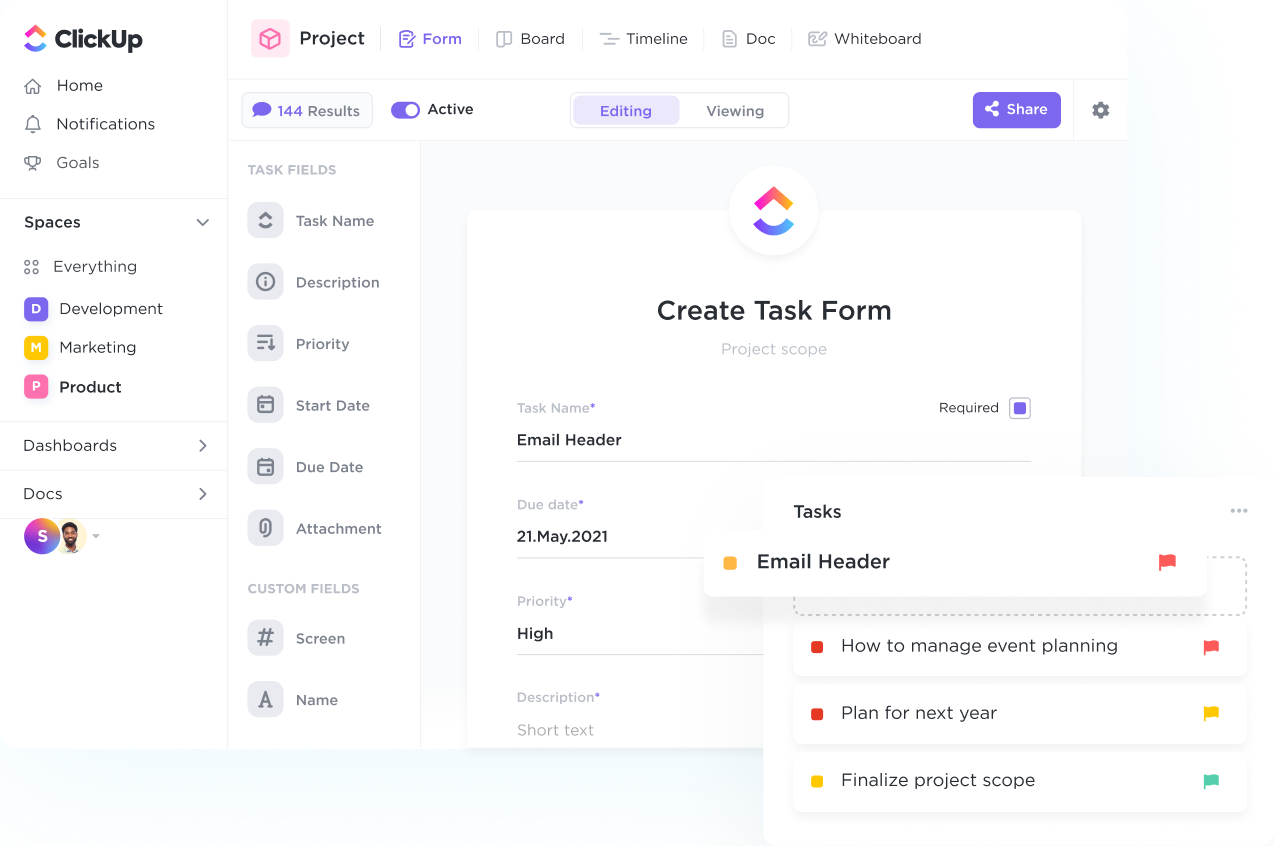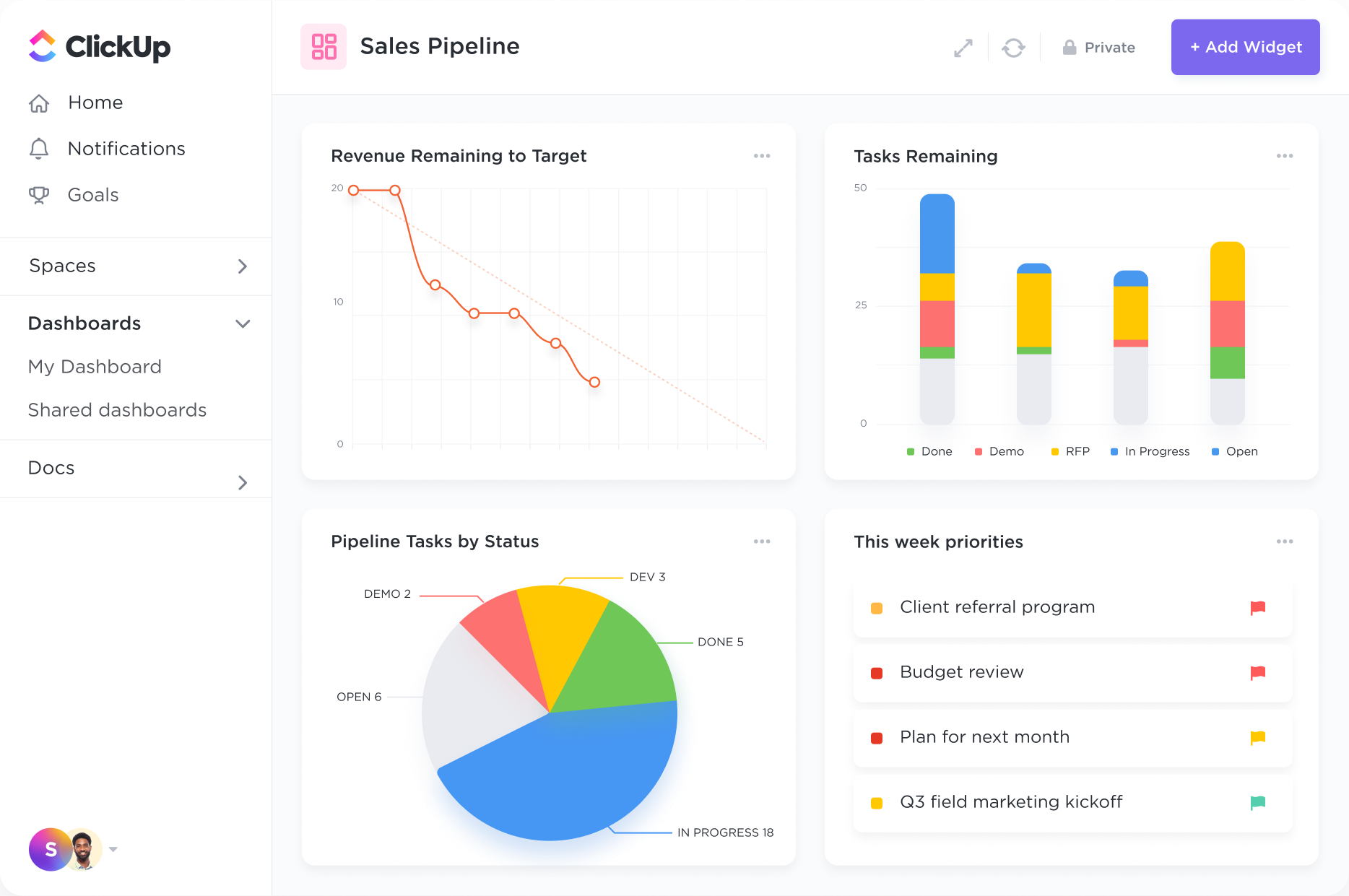Onboard customers and collect info in a snap.
Streamline your intake process, organize response data, and automatically create tasks with custom branded Forms powered by conditional logic.

Supercharge your trades business with a customized CRM system powered by ClickUp. Streamline your workflow, track leads, and nurture customer relationships all in one place. Take your business to the next level with our user-friendly platform designed specifically for tradesmen.
Free forever.
No credit card.
Trusted by the world’s leading businesses
Streamline your intake process, organize response data, and automatically create tasks with custom branded Forms powered by conditional logic.

Create high-level views to monitor customer lifetime value, average deal sizes, and more. ClickUp's 50+ Dashboard widgets make it easy to visualize all of your customer data in one place.

CRM software can help you manage customer contacts and appointments more efficiently by providing a centralized database for contact information, scheduling tools for appointments, automated reminders, and easy access to customer history and preferences.
When choosing a CRM software for tradesmen, look for features like job tracking, appointment scheduling, quoting and invoicing capabilities, client database management, and mobile access for on-the-go use in the field.
Yes, CRM software for tradesmen can help you track project progress, manage invoices, and handle payments efficiently in one centralized platform, improving project organization and financial management.